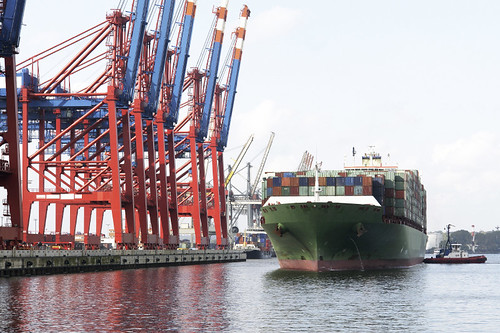
Every day, USDA’s Foreign Agricultural Service (FAS) field offices work to maintain access for U.S. products in export markets around the world. When trade is disrupted, these offices step up to the plate to address the issue and work with their counterparts in Washington, D.C., the exporters, and the foreign government to ensure trade can resume.
The FAS office in Santiago, Chile is one of 98 FAS offices worldwide that works diligently to ensure the trade of agricultural products flow smoothly. U.S. producers recently became eligible to ship a larger selection of U.S. beef and beef products to Chile. The market opening in Chile followed months of bilateral meetings between officials from the Chilean government, USDA, and the Office of the U.S. Trade Representative (USTR).
The United States exported approximately $6.2 million in beef and beef products to Chile in 2010. Worldwide, the United States exported nearly $4.1 billion of beef and beef products in 2010, up 32 percent from 2009. While the market for U.S. beef in Chile represents a small fraction of the overall beef export market, gaining access is an important step in building our market in South America.
“Chile is a small market but every sale helps support American jobs,” said Rachel Bickford, agricultural attaché in the FAS Chile office. “FAS can leverage this success in Chile, a country with a strict regulatory regime, to convince other countries to open their markets to U.S. beef products.”
Changes in market access can sometimes lead to challenges as both U.S. companies and the destination country become accustomed to new products and export certificates. For example, in March 2011, two containers of beef from the United States were briefly held at the port of entry over a paperwork issue. The FAS Chile office made contact with the Chilean Ministry of Health and USDA’s Food Safety and Inspection Service to remedy the situation. The FAS Chile office then worked closely with Chilean health authorities so that they would accept these shipments. After two days of negotiations, Chilean authorities released the detained container. This shipment was valued at $57,000.
These types of challenge are the ‘nuts and bolts’ of the work FAS does on a daily basis and are a critical part in maintaining and expanding access of U.S. agricultural products overseas. As USDA works toward President Obama’s National Export Initiative goal of doubling overall U.S. exports by the end of 2014, the work of our field offices remain a key component to continued U.S. export success.
